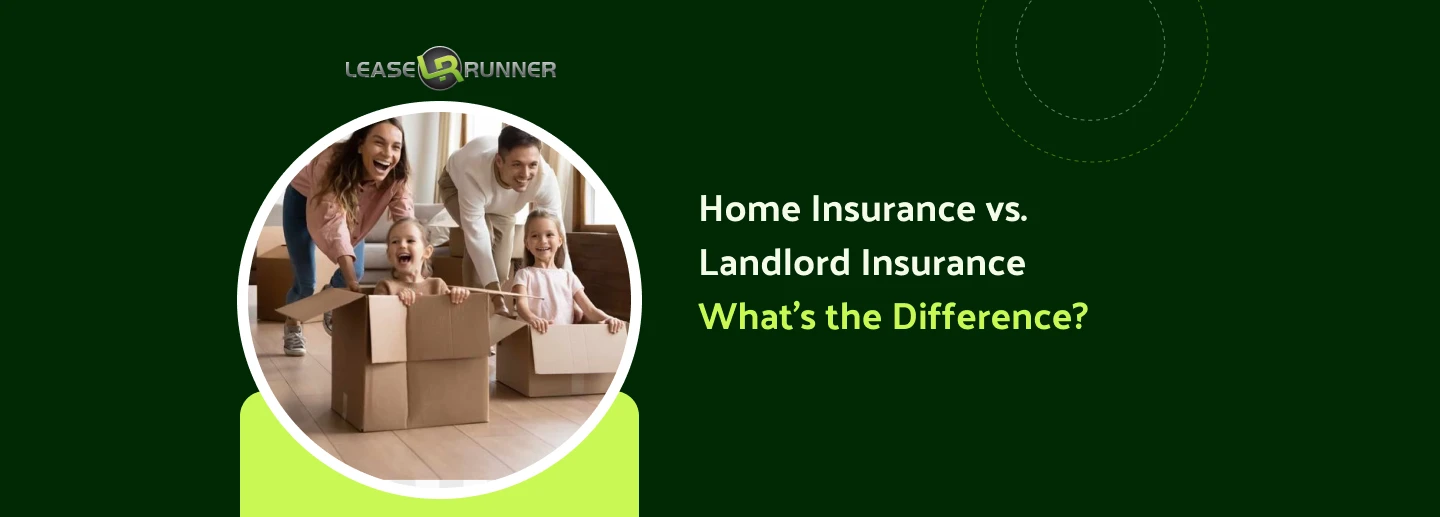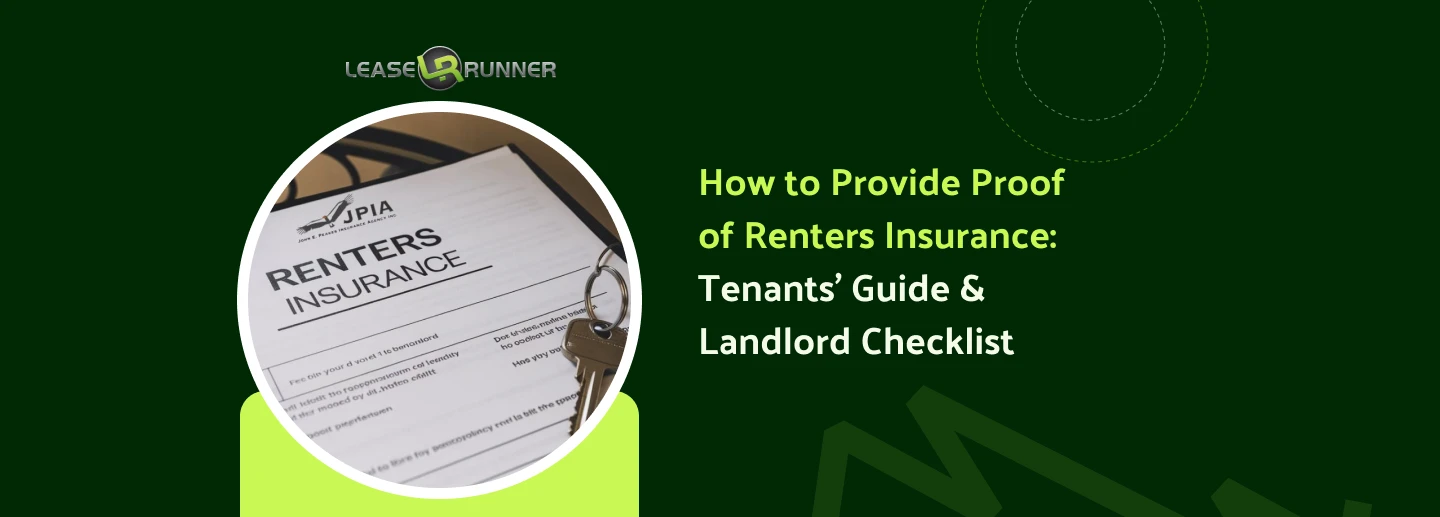
Property insurance can get confusing fast. Two of the most common types, home insurance vs landlord insurance, are often mixed up, but each one plays a specific role. In this guide, we will break them down to help you understand which coverage is best for your situation and why it matters more than you might think!
What Is Homeowners Insurance?
Rental homeowners insurance is designed to protect the structure of your home and the personal belongings inside it. It also offers liability coverage in case someone is injured on your property. A standard policy typically covers damage caused by events like fire, storms, theft, and certain types of water damage. Beyond these, it may also help cover additional living expenses if your home becomes uninhabitable due to a covered loss, such as paying for temporary accommodation or meals.

House insurance when renting not only helps pay for repairs or rebuilding but can also provide financial protection against costs or losses not directly related to the listed events, giving you a broader safety net in unexpected situations.
Who Pays for Home Insurance When Renting?
The homeowner pays for insurance on the property, even when it’s being rented out.
Tenants are responsible for their own renters insurance. That policy covers their belongings, like furniture, electronics, and clothes, as well as their personal liability. So, while the structure is covered by the landlord, renters still need their own protection.
How Does Homeowners Insurance Work When Renting a Property?
Once you start renting out your home, a standard homeowners policy usually isn’t enough. Most rental homeowner insurance is meant for owner-occupied homes. So if you're no longer living there, your policy might not cover damage or liability related to tenants.
To stay protected, you’ll likely need to switch to let property insurance (landlord insurance). Please ensure you are aware of the KW notice period requirements as outlined in your lease or insurance agreement.
What Is Landlord Insurance?

Building insurance and landlord insurance are often discussed together, but landlord insurance is broader. It’s designed for people who rent out property—whether it’s a single-family home, a condo, or a multi-unit building. Landlord insurance covers the physical structure, protects you from certain legal risks, and can even help replace lost rental income if the property becomes unlivable due to a covered event.
Unlike homeowners insurance, landlord insurance doesn’t protect your tenant’s belongings. It focuses on your investment and the risks that come with being a landlord.
Landlord Insurance for Investment Properties
When a home becomes a rental, it becomes a business, and a business needs the right protection. Landlord insurance gives property investors coverage for things like fire damage, storms, liability claims, and more. Some policies can even include vandalism protection or coverage for appliances provided to tenants.
Owning rental property is a smart investment. Landlord insurance helps make sure that investment is protected
How Much Does Landlord Insurance Cost?
When comparing landlord insurance vs homeowners insurance cost, landlord policies are typically 15% to 25% more than rental homeowners insurance. That’s because renting out a property comes with extra risks, like tenant damage or longer repair times after a covered loss.
Your premium depends on things like location, building size and age, the type of rental (short-term or long-term), and what coverage options you choose. While the cost is higher, the peace of mind is worth it!
Key Differences Between Home Insurance vs. Landlord Insurance

Before choosing the right policy, it helps to see how homeowner rental insurance vs landlord insurance compare side by side.
Coverage: Property Damage vs. Tenant Belongings
House insurance when renting protects your house and everything in it, like furniture, electronics, and clothing. Landlord insurance focuses on the structure itself and any items you provide, such as appliances. It does not cover a tenant’s belongings; that’s the tenant’s responsibility through renters insurance.
Liability Protection: Homeowner vs. Tenant Accidents
Both policies offer liability protection, but the specific situations they cover are different.
- Homeowners insurance protects you if a guest who is not a tenant is injured on your property.
- Landlord insurance provides liability protection for you as the landlord and the tenant if a tenant or one of their visitors gets hurt on the rental property. This distinction is crucial, as a standard homeowners policy will likely not cover liability claims related to a rental situation.
How Rental Income Protection Differs
The protection of rental income is a major distinguishing factor between the two types of insurance.
- Homeowners policies typically don't include any kind of rental income protection. If you are living in your home, there is no rental income to lose.
- Many landlord policies do, however, include this coverage. If a covered event (such as a fire or flood) makes your rental property uninhabitable, landlord insurance can help replace the rental income you lose while repairs are being made. This is a critical feature that safeguards your financial interests as a property owner. While not legally mandated in most places, many mortgage lenders require landlords to have this type of specialized policy.
In short, while both policies offer protection for property and liability, they serve different purposes. The table below summarizes the main differences so you can quickly identify which coverage best fits your needs.
When Should Landlords Consider Getting Landlord Insurance?
Deciding between home insurance vs landlord insurance depends entirely on how you use your property. Here are the key considerations for each type to help property owners choose the right coverage for their needs:
Choose Homeowners Insurance if:
- You live in the property full-time: It’s your primary residence, not rented out.
- You own personal belongings inside the home: Furniture, electronics, and other items you want covered.
- You occasionally host guests: Liability protection applies to visitors who are not tenants.
- You want coverage for extra living costs. If your home is unlivable after a covered loss, the policy pays for temporary housing and meals.
- You’re not relying on rental income: You don’t need coverage for lost rent since you’re not leasing the property.
Choose Landlord Insurance if:
- You rent out the property: Whether it’s a single-family home, condo, or apartment unit.
- You want to protect the building structure. This includes coverage for the rental property and any appliances or furnishings you provide.
- You need rental income protection: Compensation for lost rent if the unit becomes uninhabitable due to a covered event.
- You want liability coverage for tenant-related incidents: Protects you if a tenant or their guest is injured on the property because of unsafe conditions.
- Your mortgage lender requires it: Many lenders mandate landlord insurance as part of the loan agreement for rental properties.
If you live in part of the property and rent out another part (e.g., a duplex), you may need a hybrid or specialized policy that combines aspects of both homeowners and landlord insurance. Always confirm with your insurance provider to avoid coverage gaps.
Can You Combine Homeowners and Landlord Insurance?
Homeowners and landlord insurance serve different purposes, so they aren’t typically combined into a single policy. However, you can hold both types of policies at the same time if you own multiple properties.
For example, you might have homeowners insurance for investment properties and landlord insurance for a rental property you own. Some insurers also offer bundling discounts when you have multiple policies with them. Therefore, it’s worth asking your provider about savings opportunities.
Wrap up
Home insurance vs landlord insurance can feel complicated, but the goal is simple: protect your property and your finances. When in doubt, go to LeaseRunner, and we will guide you through your best coverage options!
FAQs
Q1: Do I need landlord insurance for a short-term rental like Airbnb?
Yes, standard homeowners insurance typically doesn’t cover short-term rentals. If you’re renting out your home or part of it through platforms like Airbnb or Vrbo, you’ll likely need specialized coverage. Some insurance companies offer endorsements or separate policies for short-term rentals.
Q2: Can I require tenants to carry renters insurance?
Yes, and many landlords do. Requiring renters insurance helps ensure your tenants’ personal belongings are protected and may reduce your liability. It also encourages tenants to be more cautious, since they have a financial stake in protecting their own stuff.







